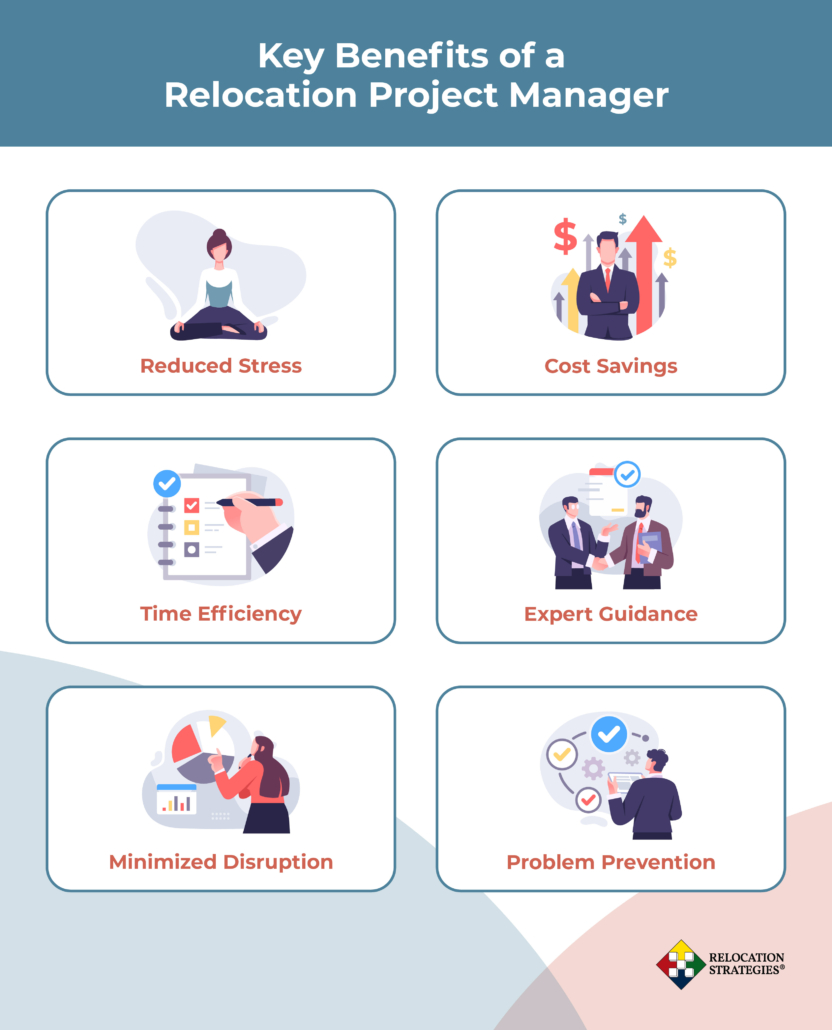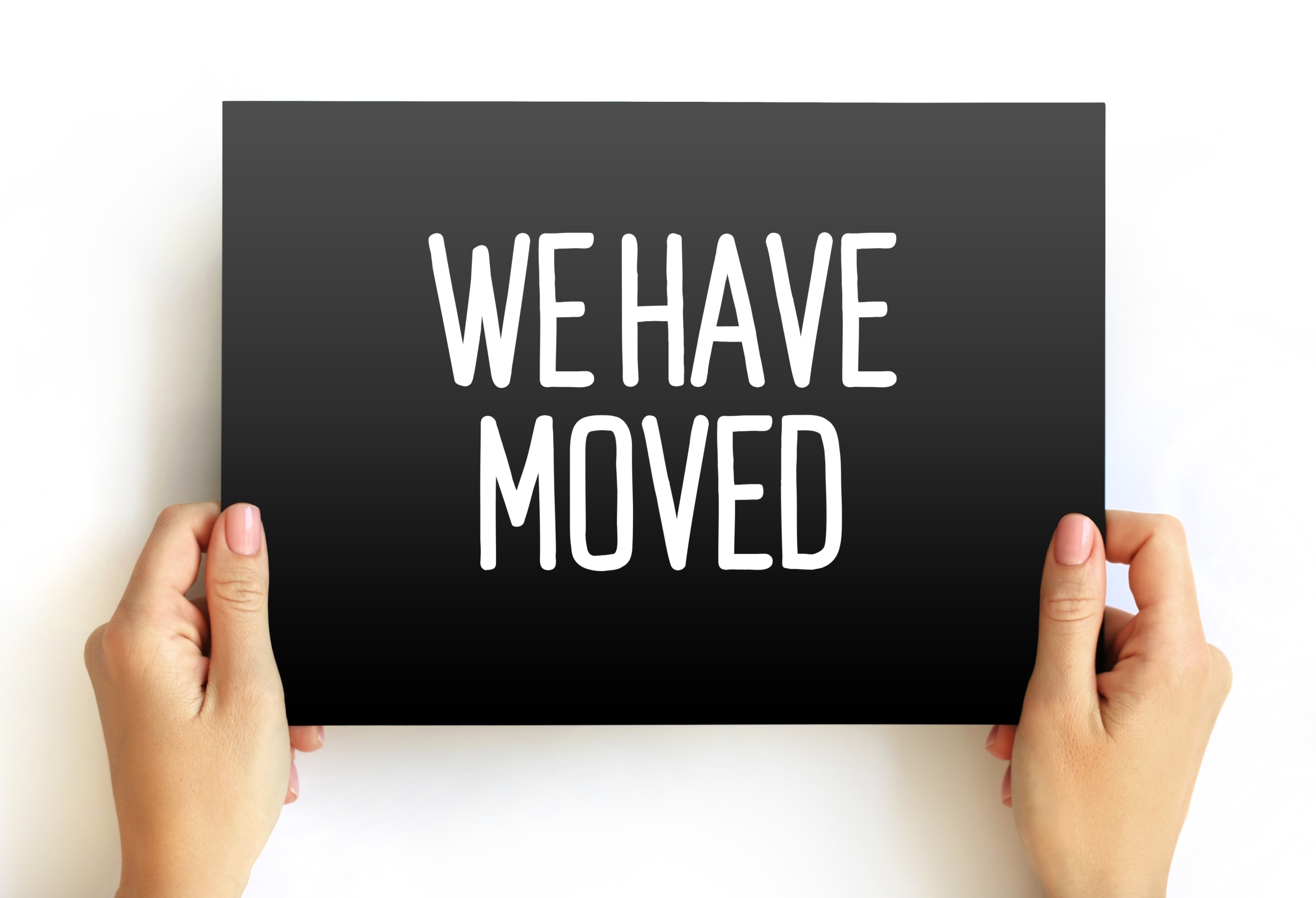Everything to Know About Commercial Relocation Project Management
Imagine relocating your business without the headaches, delays, and unexpected costs. With commercial relocation project management, this is entirely possible. Expert project managers take the reins, handling everything from space planning and vendor coordination to IT setup and employee relocation, allowing you to focus on what matters most – your business. Discover how a professional moving company can simplify your move and ensure a seamless transition.
What Exactly is Commercial Relocation Project Management?
Commercial relocation project management is the process of overseeing and coordinating all aspects of a business relocation, from planning and vendor connections to strategy and execution. It takes the complexity out of moving your business.
This includes detailed planning and strategy, where a customized relocation plan is created, tailored to your specific needs, budget, and timeline. It also involves vendor coordination, sourcing, and managing reliable movers, IT specialists, furniture installers, and other essential vendors. Logistics management is another key component, handling all the details, from packing and transportation to unpacking and setup in your new space. And importantly, it includes employee communication, keeping your team informed, and minimizing disruption to their work. A skilled commercial relocation project manager acts as your single point of contact, ensuring a smooth, efficient, and stress-free transition for your entire business.
The Benefits of Commercial Relocation Project Management
Relocating your commercial business can feel like a juggling act. There’s the search for the right space, managing budgets, sticking to timelines, and minimizing disruption for your employees. A commercial relocation project manager takes on that juggling act for you, bringing a wealth of benefits to your move:
- Reduced Stress: Say goodbye to the overwhelming details and endless coordination. Your project manager handles it all, allowing you to focus on your core business operations.
- Cost Savings: Experienced project managers have established vendor networks and negotiation skills to secure the best rates on everything from moving services to office furniture.
- Time Efficiency: With a streamlined plan and efficient execution, your relocation is completed on schedule, minimizing downtime and maximizing productivity.
- Expert Guidance: Benefit from the knowledge and insights of a seasoned professional who understands the intricacies of commercial relocations.
- Minimized Disruption: A well-managed relocation ensures a smooth transition for your employees, maintaining morale and productivity throughout the process.
- Problem Prevention and Resolution: Experienced project managers anticipate potential challenges and have the expertise to resolve any issues that may arise.
By partnering with a commercial relocation project manager, you gain a dedicated expert who ensures a seamless, efficient, and stress-free move for your entire organization.

Professional Commercial Relocation Project Management Services
A commercial relocation project manager acts as your partner and guide throughout the entire moving process. They offer a comprehensive suite of services tailored to your specific needs, ensuring a smooth transition and minimal disruption to your business.
Space Planning and Design
Your project manager will help you optimize your new office layout to enhance productivity and create a positive work environment. This includes:
- Space planning to maximize efficiency and flow.
- Furniture selection and procurement.
- Design considerations to create a functional and aesthetically pleasing workspace.
Move Management
Leave the logistics to the experts. Your project manager will oversee:
- Packing and unpacking of office equipment and furniture.
- Coordination of movers and transportation.
- Secure handling of sensitive equipment and confidential documents.
IT and Telecom Coordination
Ensure your technology seamlessly transitions to your new office. Your project manager will:
- Coordinate the transfer of your IT infrastructure.
- Manage internet, phone system, and network connectivity installation.
- Minimize downtime and ensure business continuity.
Vendor Management
One of the most important aspects of commercial relocation project management is choosing the right vendors. Your relocation project manager will:
- Leverage their network of trusted vendors to secure the best rates and services.
- Handle all vendor coordination and logistics, saving you time and effort.
- Negotiate contracts and ensure quality service delivery.
Project Budgeting and Cost Control
Stay on track and avoid unexpected expenses. Your project manager will:
- Develop a detailed budget for your relocation project.
- Track expenses and provide regular financial reports.
- Identify cost-saving opportunities and maximize your budget.
Employee Relocation Assistance
Support your employees throughout the transition. Your project manager can:
- Provide resources and assistance for employees who are relocating.
- Help with finding temporary housing or connecting them with local services.
- Communicate effectively with employees to minimize stress and disruption.
Post-Move Support
Ensure a smooth settling-in process. Your project manager will:
- Oversee furniture setup and equipment installation.
- Address any post-move issues or concerns promptly.
- Help you optimize your new workspace for maximum efficiency.
Peace of Mind for Your Commercial Relocation
Moving your business is a major undertaking, but it doesn’t have to be a stressful one. With the right support, you can ensure a smooth transition and minimize disruption to your operations. Commercial relocation project management offers peace of mind by taking the weight off your shoulders, allowing you to delegate the complex logistics and coordination to experienced professionals. It also protects your bottom line by helping you control costs and avoid unexpected expenses with expert budget management. Furthermore, it keeps your employees happy by ensuring a seamless transition for your team, minimizing stress, and maintaining productivity.
Ultimately, commercial relocation project management gets you back to business faster by streamlining the relocation process and reducing downtime, allowing you to focus on what you do best. Don’t leave your relocation to chance. Partner with a commercial relocation project manager and experience a stress-free move to your new workspace.




